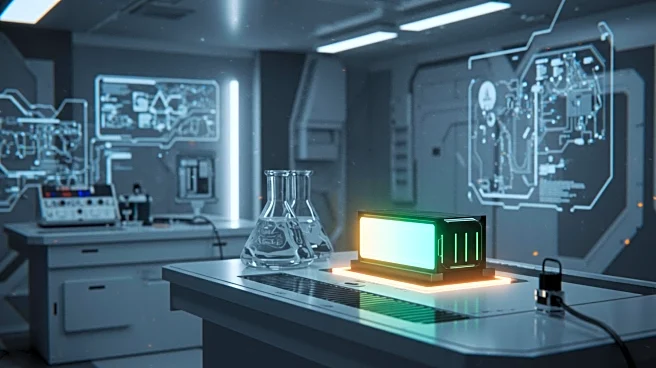What's Happening?
Nissan Motor Co., Ltd., a prominent automotive manufacturer, has formed a strategic partnership with LiCAP Technologies, Inc., a U.S.-based company specializing in sustainable dry electrode technology. The collaboration focuses on developing and scaling dry cathode electrode technology for Nissan's all-solid-state batteries (ASSBs). This partnership builds upon a successful joint development program, utilizing LiCAP's proprietary Activated Dry Electrode® technology. The technology offers significant benefits in terms of cost, sustainability, production efficiency, and performance compared to traditional methods. This initiative is a crucial step towards advancing ASSB manufacturing, supporting the next generation of high-performance, cost-effective electric vehicles (EVs), in line with Nissan's Ambition 2030 vision.
Why It's Important?
The partnership between Nissan and LiCAP is significant for the automotive industry, particularly in the realm of electric vehicles. All-solid-state batteries are considered a breakthrough in battery technology due to their potential for higher energy density, improved safety, and longer lifespan compared to conventional lithium-ion batteries. By advancing this technology, Nissan aims to enhance the performance and affordability of its electric vehicles, which could accelerate the adoption of EVs globally. This collaboration also underscores the importance of sustainable manufacturing practices, as LiCAP's technology reduces environmental impact and production costs. The development of ASSBs aligns with broader industry trends towards sustainability and innovation in energy storage solutions.
What's Next?
As Nissan and LiCAP continue their collaboration, the focus will likely be on scaling the production of dry cathode electrode technology and integrating it into Nissan's electric vehicle lineup. This could involve further research and development to optimize the technology for mass production and ensure compatibility with existing manufacturing processes. The partnership may also lead to additional collaborations or investments in related technologies to support Nissan's Ambition 2030 vision. Stakeholders, including automotive manufacturers, technology developers, and environmental groups, will be closely monitoring the progress and potential impact of this initiative on the EV market and sustainability efforts.









